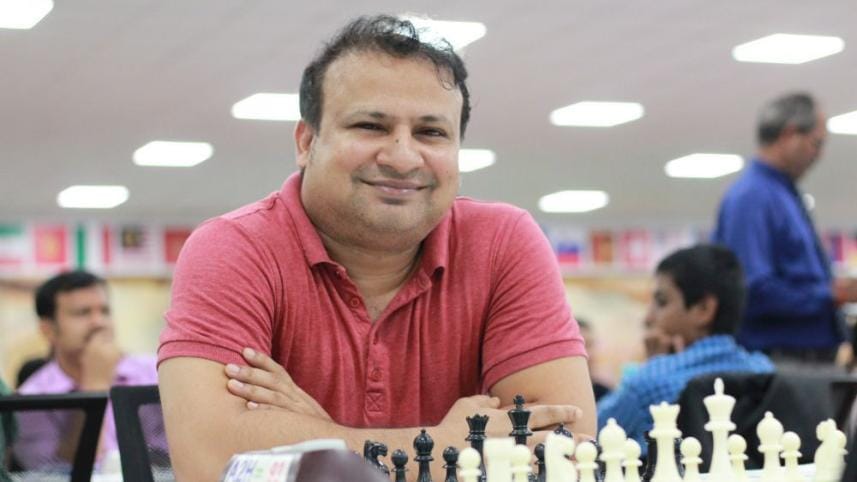'Chess in Bangladesh needs a new role model'

At 59, Niaz Murshed, the subcontinent's first grandmaster, claimed his seventh national title by winning the 49th National Chess Championship on Wednesday. While his triumph celebrated a living legend, it also highlighted the fragile state of chess in Bangladesh.
Three grandmasters -- Reefat Bin Sattar, Enamul Hossain Razib, and Abdullah Al Rakib -- were unavailable for the championship, while the country lost GM Ziaur Rahman last year. Niaz's victory, achieved in the absence of other big names, testified to his enduring brilliance but also exposed a glaring void at the top level of chess in the country.
This year's focus was on the younger generation -- IM Fahad Rahman, IM Manon Reza Neer, FM Tahsin Tajwar Zia, and FM Shakline Mostafa Sajid -- especially after Neer's national triumph last year. Fahad finished runner-up, while Niaz, who had only aimed for a top-five finish to secure a place in the national team for the upcoming Chess Olympiad, eventually ended up making it all the way.
According to Niaz, Bangladesh's failure to produce a sixth grandmaster since 2008, when Enamul last earned the title, stems from outdated strategies and flawed planning.
"They [Fahad, Neer, Tahsin, Shakline] have been stuck at a certain stage for two reasons – our own problems and worldwide rating depletion," Niaz explained. He noted that FIDE's new rating system has lowered scores across the globe, further complicating progress for local talents.
In preparation for the Chess World Cup in India from October 31 to November 27, the Bangladesh Chess Federation (BCF) is planning to bring in a Russian grandmaster to train Fahad, Neer, and a few other prospects. Niaz, however, criticised this approach.
"Hiring foreign coaches for one or two months has never worked. It's poor planning," he said. "Young players need quality tournaments and long-term training. They can learn plenty from me as well. They [BCF] are repeating the same mistakes."
Bangladesh's five existing grandmasters all won multiple national championships before achieving the GM title, but among the current prospects, only Neer has one national title. That fact alone explains why the wait for a sixth GM has dragged on for 17 years.
Still, Niaz remains hopeful that the breakthrough will eventually come from the current pool of players – a milestone he believes could help revive chess in the country.
"You can't attract players without a role model. I was a role model for the last generation, not this one," Niaz said. "We need a new role model. If Fahad or Neer had become grandmasters at 15 or 16, it could inspire many to take up chess. But we've failed to create that new icon."



 For all latest news, follow The Daily Star's Google News channel.
For all latest news, follow The Daily Star's Google News channel.
Comments